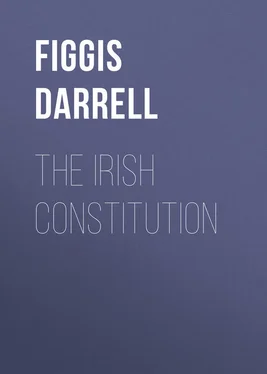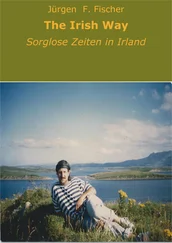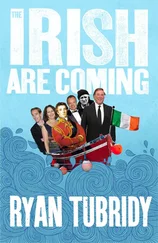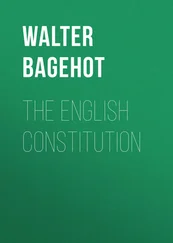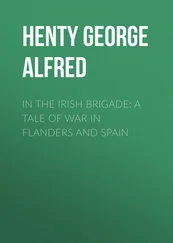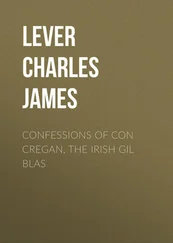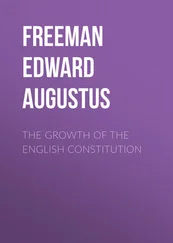Darrell Figgis - The Irish Constitution
Здесь есть возможность читать онлайн «Darrell Figgis - The Irish Constitution» — ознакомительный отрывок электронной книги совершенно бесплатно, а после прочтения отрывка купить полную версию. В некоторых случаях можно слушать аудио, скачать через торрент в формате fb2 и присутствует краткое содержание. Жанр: foreign_antique, foreign_prose, на английском языке. Описание произведения, (предисловие) а так же отзывы посетителей доступны на портале библиотеки ЛибКат.
- Название:The Irish Constitution
- Автор:
- Жанр:
- Год:неизвестен
- ISBN:нет данных
- Рейтинг книги:3 / 5. Голосов: 1
-
Избранное:Добавить в избранное
- Отзывы:
-
Ваша оценка:
- 60
- 1
- 2
- 3
- 4
- 5
The Irish Constitution: краткое содержание, описание и аннотация
Предлагаем к чтению аннотацию, описание, краткое содержание или предисловие (зависит от того, что написал сам автор книги «The Irish Constitution»). Если вы не нашли необходимую информацию о книге — напишите в комментариях, мы постараемся отыскать её.
The Irish Constitution — читать онлайн ознакомительный отрывок
Ниже представлен текст книги, разбитый по страницам. Система сохранения места последней прочитанной страницы, позволяет с удобством читать онлайн бесплатно книгу «The Irish Constitution», без необходимости каждый раз заново искать на чём Вы остановились. Поставьте закладку, и сможете в любой момент перейти на страницу, на которой закончили чтение.
Интервал:
Закладка:
Darrell Figgis
The Irish Constitution / Explained by Darrell Figgis
Introduction
IRELAND AND A COMMUNITY OF NATIONS
The articles that are now gathered together in this little book were first published in the Irish Independent at the invitation of its Editor. They were not written for publication in book-form; and they naturally suffer, in their present form, from the conditions that were first imposed on them, conditions proper to their original setting. With the exception of two of them, they were written rather in a spirit of exposition than in a spirit of analysis and criticism; and this intention was only departed from because it seemed that the two matters so dealt with departed, with differing degrees of flagrancy, from the original purpose of the Constitution, which was to make the mechanism of Government malleable at every stage to the will of the people of Ireland.
Whether one believes ardently in the faith that the will of a people should under all circumstances prevail, and that the forms of Government should at all times be submissive to that will, is indifferent. That is a question for the individual, with which I do not presume to interfere. One need only believe with l’Abbé Coignard that “a people is not susceptible to more than one form of government at the same period,” to believe, further, that if one asserts the derivation of all power and authority from the popular will, if that will be once fairly and honestly ascertained, it then follows that the will of the people is sufficient to itself, and that all forms of government must be made malleable to it. On that supposition, all frustrations and obstructions of, and impediments to, the constant exercise of that will must of necessity be cogs in the machinery of government; and for that reason in two articles I turned from exposition to criticism.
Apart from these two matters, I held to the essentials of exposition, without turning aside to criticism of details; and I based that exposition on the original plan and structure, which are preserved in the present draft, of the Constitution. It is right that the Fundamental Law of a State should be fully discussed and debated before it be enacted; and when that debate occurs criticism will find details enough to fasten upon. But at the present moment it is the essential plan that matters – not the feudal trumperies with which it is adorned, like stage jewels stuck upon a comely and decent garment, marring its simple truth, but not otherwise injuring its effectiveness for its purpose. And it was because it seemed to me that these two matters departed from the spirit of this essential plan, by placing important parts of the Judiciary and the Executive beyond the ready control of the people or the people’s representatives, that I dealt with them as I did. Apart from them I kept away from criticism.
Similarly I did not deal with certain matters anterior to the Constitution, in the light of which the Constitution can alone be understood. They lay out of sight of these articles, though they were essential to them, since they brought the Constitution, in its present form, into being. Chief among these is the historical fact that Ireland has, by Treaty, confirmed by the act of her Legislature, consented to enter a Community of Nations known at the moment as the British Commonwealth of Nations. We may disagree with this act; but it is an international fact; and without it the Constitution would not be what it now is. This factor in the result is therefore worth brief attention, by way of introduction to the present publication of these articles.
To anyone familiar with the constitutions of the nations that now comprise the Commonwealth of Nations the present Constitution will speak in an unaccustomed language. It is unlike any of them. It has clearly been planned as the result of a distinct and separate conception. The causes of the difference are, however, not very difficult to discover, and once seen are plain to understand. They constitute what may prove to be an international factor of the very first importance.
These causes fall under, broadly, two heads. The first is that Ireland is not what these other nations were when their Constitutions were first framed. Nor is Ireland, indeed, what they are now. Canada, for example, and Australia, are English Colonies, first established by white men in a coloured population. The greater part of these white men draw their traditions and inspiration, their habits of thought and habits of public conduct, from the rootstock of the English nation. They look to England as their mother-country. But Ireland is an ancient nation and a mother-country in her own right. She has herself peopled the earth with her children. Her empire is as far-flung as England’s. And if it is not based on military might, but linked by ties of memory, pride and love, it has not therefore proved itself any the less powerful internationally at times of crisis and danger for the mother at home.
Moreover, it was she who, when in the eighth and ninth centuries Europe fell into decay after the barbarian inroads, re-established and rebuilt European civilisation, sending her scholars with her books into every part of the continent of ruin. It was her missionaries, indeed, who first brought Christianity to England, and her scholars who taught the first English poet his letters. Before the name of England was heard, the name of Ireland was known and respected. She possessed an intricate, if uncompleted national polity when the neighbouring island was peopled by distinct and scattered populations of conquerors. By virtue of these ancient dignities she was accorded international rank long after England had risen to nationhood, and when invasion had brought her national polity to ruin and silenced the voice of poet and scholar.
These are not matters merely of the past. If they were, they could be dismissed to the antiquity in which they would lie. But they live in the consciousness of a nation to-day; and therefore to-day they are a factor, to neglect which would be to neglect a prime element without which neither the present nor the future may be understood. Only the sentimentalist waves out of sight considerations that are unpleasant to him. The realist faces every element of being, conscious or unconscious; for he knows that only out of the sum of all those elements can life proceed, or creation begin.
For these ancient dignities have passed into the consciousness of every sort of Irishmen. It was, for example, Molyneux who, in his Case of Ireland Stated at the end of the 17th century, first among modern Irish writers based an argument upon them. Molyneux was an English colonist. In the wars of Tirconnell and Patrick Sarsfield he had fled to England, returning only when Ginkel the Dutchman had won the field for his master, now monarch of England. He regarded the ancient nation with aversion. Yet when the English Parliament harassed what he proudly conceived to be the ancient liberty of Ireland, he stated the case of that nation, stated it as his case, in a public document of historic moment; and the English Parliament caused his book to be burned by the public hangman.
The sorest part of his book was his reference to the Council of Constance of 1416. This Council may rightly claim to be the first of modern international congresses. At it a certain question of precedence had arisen between France and England, which was referred to the Court of Heralds. In the judgment which was given it was stated as an international ruling that Europe was first constituted from four nations. These nations, in the order of their precedence, were Rome, Byzantium, Ireland and Spain. And Molyneux, the English colonist, proudly referred to this ruling, and based a great part of his case upon it.
The breed of Molyneux is alive to-day. Political differences have divided it from the ancient race which furnished its arguments. But the pride is the same; the sense of possession is essentially the same, obscured though it may have been by the causes of difference; and when a new alignment of political parties has blent the two points of view into one outlook, and made the whole consciousness to merge in one, the living factor of ancient nationhood will arise with a new strength.
Читать дальшеИнтервал:
Закладка:
Похожие книги на «The Irish Constitution»
Представляем Вашему вниманию похожие книги на «The Irish Constitution» списком для выбора. Мы отобрали схожую по названию и смыслу литературу в надежде предоставить читателям больше вариантов отыскать новые, интересные, ещё непрочитанные произведения.
Обсуждение, отзывы о книге «The Irish Constitution» и просто собственные мнения читателей. Оставьте ваши комментарии, напишите, что Вы думаете о произведении, его смысле или главных героях. Укажите что конкретно понравилось, а что нет, и почему Вы так считаете.
